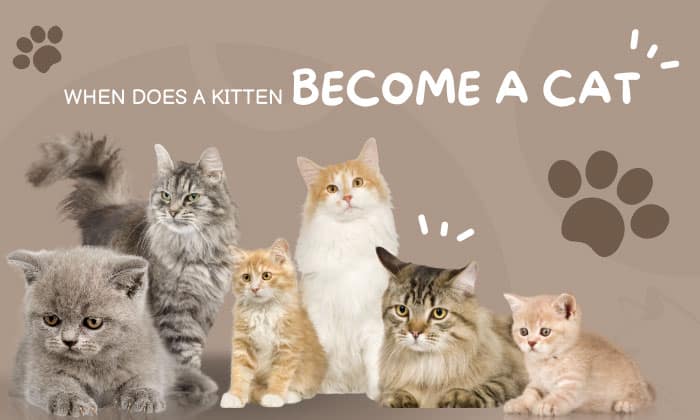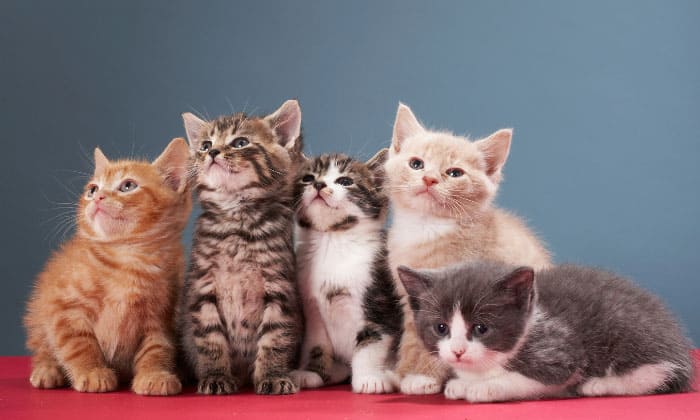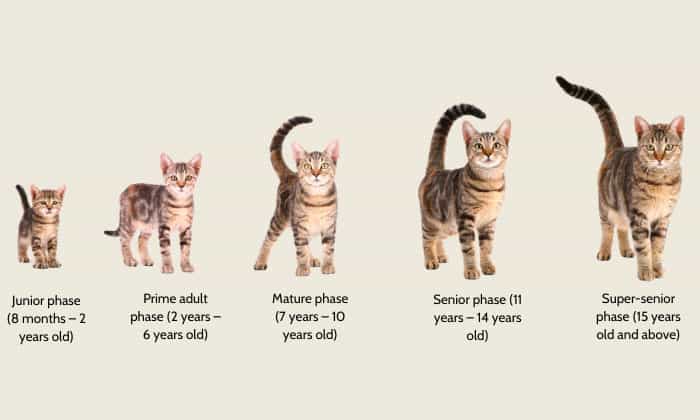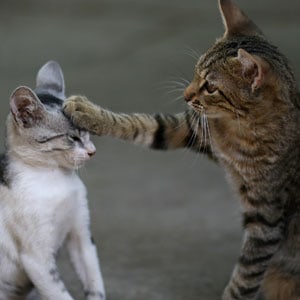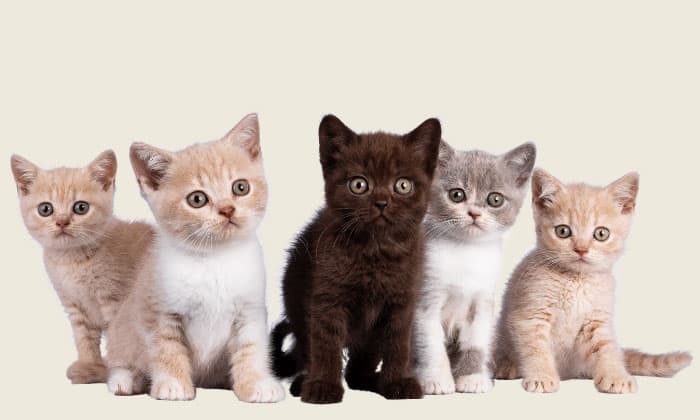Raising a kitten is a funny yet challenging journey. You might want your fluffy baby to stay tiny forever but there’s time you have to ask, “When does a kitten become a cat?”
Generally, kittens turn into adults when they reach their first year. But the specific period may vary among different breeds of cats. Particularly, larger ones need a little more time to fully grow (a few months expected).
For every cat owner, noticing the maturity stage of their child is the key to some critical adjustments in food, vaccinations, exercises, and beyond.
In this article, we’ll discuss this process in detail so that you have a better grasp of how to nurture a kitten in a happy and healthy way.
Table of Contents
Processes of Kitten Development in the 1st Year
Kittens will develop rapidly in the first year of their lifetime. There would be significant changes in their size, weight, and behavior following the kitten’s age chart.
See below to know the main transitions from the time they are born to the age when kittens become cats.
- First two weeks
Kittens are not born with their eyes open and they hardly respond to sounds. They’re weak, vulnerable, and depend on their mothers all the time for food and heat.
At the end of the second week, their eyes are slightly open. Though it might be blurry, they start to see the world for the first time.
- By three weeks
At this time, kittens’ ability to hear is still improving (their ear canals are fully developed, though).
- By four weeks
Their teeth first appear. Kittens are less dependent on their mom. Instead, the development of their senses and the ability to walk make them much more eager and mobile.
- By eight to twelve weeks
Kittens become more social and energetic when they reach this age. It’s also the ideal time for their first immunizations.
Carefully check your kittens during this stage if you want to separate them from their moms or take them to the vet for vaccinations.
- By four months
It’s when their adult teeth start to replace their milk teeth. You’ll witness a fully-developed set by the time your kitten is 7 months old.
- By six months
Rapid growth in muscles and bones is expected at this age. Your kittens are about to reach their adult size and weight. Thus, it’s important to pay attention to their diet and nutrients to ensure normal development.
- By one year
It’s adult time! Now your kittens are considered cats, with a full ability to socialize, hunt, and develop a perfect coat.
Phases of an Adult Cat
When your cats stop being kittens, they turn into several phases of adulthood, which have changes in their development and requirements.
The breakdown information below will assist you in keeping an eye on your felines at home while also giving them the best care and support.
1. Junior phase (8 months – 2 years old)
At this age, cats become adults and experience a complete physical and emotional maturity. They’re much more active, aggressive, and aware of their territory.
With these changes, be sure to create a dynamic environment for your cats to let them exercise and explore the world (but remember to keep an eye on them since they might be too playful to hurt themselves).
2. Prime adult phase (2 years – 6 years old)
In the following years, cats are still energetic and gain a little more weight. However, they’re more prone to common problems of an adult cat (including dental/gum disease, intestinal issues, and so on).
Thus, be alert to their living/playing environment and try to get them vaccinated regularly.
3. Mature phase (7 years – 10 years old)
At this stage, they play less and stand a higher chance of gaining weight, which might lead to diabetes. There also increases the risk of other health problems such as heart disease or kidney.
To prevent these problems, providing them with a high-quality yet balanced diet and monitoring their weight is key.
4. Senior phase (11 years – 14 years old)
When a cat becomes a senior, his health is on a decline. Besides giving your cats an appropriate diet, take them to the hospital more often to examine their health and timely detect any issues.
5. Super-senior phase (15 years old and above)
The older they get, the more problems might be detected.
Increase regular checkups to monitor their health effectively. There’re still chances to give them suitable treatments and maintain a good life for them.
Factors That Affect Growth Rate
If you want to gain more precise information about the phase when your kittens become adults, consider the following factors:
1. Breed or genetics
Different breeds of cats will give you a diverse time of maturity. Larger cat breeds like Siberian Forest or Maine Coon will need a longer period to reach their adult size, compared to smaller breeds like Munchkin or Sphynx.
2. Gender
Female felines are often smaller and lighter than male ones, which leads to faster growth and maturity.
3. Diet
Another factor that affects how long a cat becomes an adult is diet. A high-quality and healthy diet means faster development. Any nutrient deficiency will be a barrier in the process of reaching their full size.
4. Neutering or spaying
For male kittens, whether they’re nurtured and the time they experience that plays a significant role in their growth rate. Thus, consult your vet to make a suitable decision.
Frequently Asked Questions
Signs when a kitten is no longer a kitten
There will be some signs that you might notice when your kittens stop growing.
Besides having some changes in their coats (slightly more coarse than when they’re born) and teeth (adult teeth start to replace all baby ones), they’ll become much more energetic and independent than ever before.
When should kittens eat adult food?
When kittens become full-grown, they’ll need a different diet to maintain healthy and balanced development. You might switch from kitten to cat food by the time they reach their first-year old.
However, not all cats can adapt to this diet adjustment immediately. Thus, our tip is to slowly apply the transition in about 7 to 10 days until they can totally eat the adult food.
When do your cats become sexually active?
Male and female cats have quite the same period of sexual maturity, of about 4-6 months.
There will be some signs and changes in both genders’ body development and behaviors. But the biggest difference is that male cats don’t have a heat cycle like the queens do.
Conclusion
Many owners often look at a kitten’s age chart whenever they wonder “When does a kitten become a cat?” or “How long do kittens stay small?”
You might use it for a quick estimation and further revise our detailed timeline to identify when your kittens turn into cats precisely.
It’s critical to keep track of all the changes in their stages of development. Any abnormal signs should be noticed and diagnosed immediately to ensure that your kittens mature healthily.

I am Amy Sawy, a Doctor of Veterinary Medicine (DVM) graduate from the University of Kansas. y husband, Dr. Plummer, and I own a veterinary clinic in Phillipsburg, Kansas. In addition to my professional background, I am a devoted pet owner myself, with a household that includes dogs, rodents, and most notably, cats – a total of five felines in my home.
In 2020, I joined an organization as a professional writer, leveraging my experience and collaborating with my team to deliver the most valuable information for your cat’s care.


